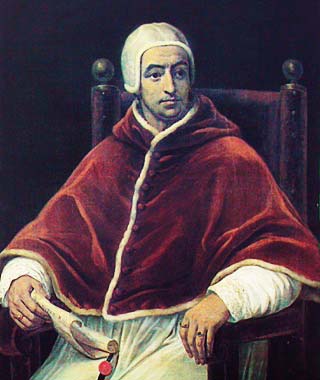For many centuries at this time, the worst popes in the history of the office, committing the most heinous crimes against God and man, sat on the papal throne, and used their position not only to trample the flock, but to grasp ever more power, wealth, and licentious living to themselves. (Ten Horns, pg. 261).
“In the year of our Lord 1408, when pope Benedict XIII did oppose the French church by tributes and exactions; the clergy, assembled by the command of King Charles VI decreed, That the king and inhabitants of the kingdom ought not to obey Benedict, who was an heretic, a schismatic, and altogether unworthy of that dignity: the which the estates of the kingdom approved, and the parliament of Paris confirmed by a decree. The same clergy also ordained that those who had been excommunicated by that pope, as forsakers and enemies of the church, should be presently absolved, nullifying all such excommunications, and this has been practised not in France only, but in other places also, as histories do credibly report. The which gives us just occasion most perspicuously to see and know, that if he who holds the place of a prince do govern ill, there may be a separation from him without incurring justly the blame of revolt; for that they are things in themselves directly contrary, to leave a bad pope, and forsake the church, a wicked king, and the kingdom.”
Junius Brutus, A Defence of Liberty Against Tyrants, part II (written in 1579).

